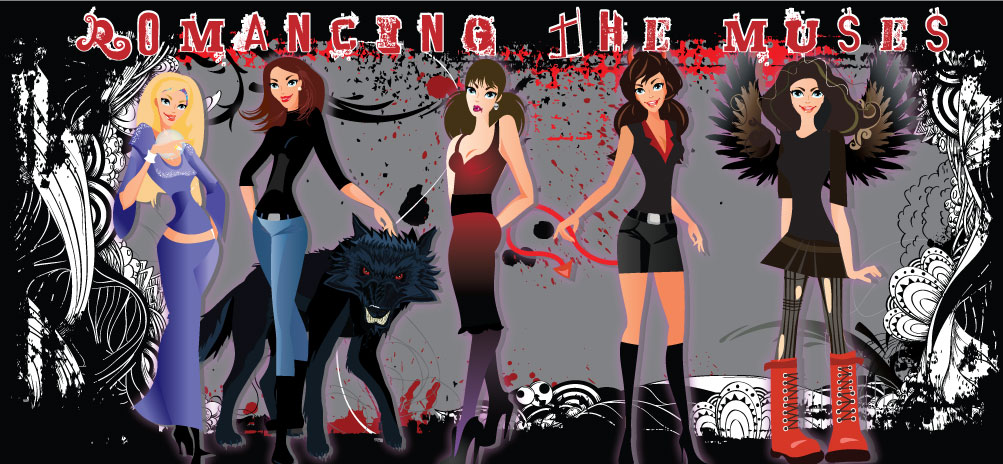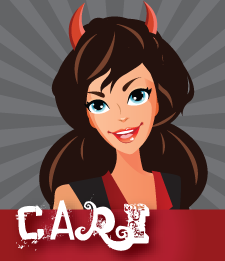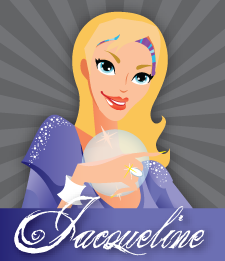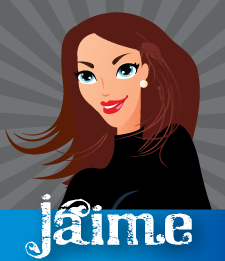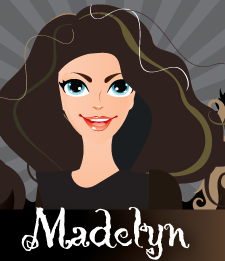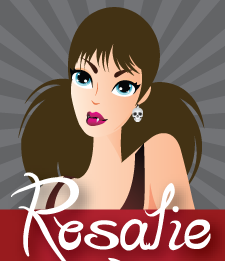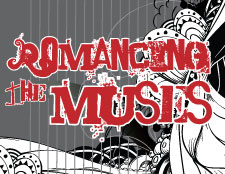I remember when I decided to listen to my family and give publication a shot. It was terrifying. I did everything I thought I was supposed to. I Googled, I researched, I started following editor's blogs, I went to Barnes and Noble and studied the manuals that would help me create a query letter. It took a good month before I had the information necessary to give it a shot. Afterward, I started the process of submitting my material. Many agents wanted electronic submissions. I can honestly say that hitting "send" was one of the most difficult things I have ever done in my life. My palms were sweaty, my breathing was stinted, and I felt lightheaded. I'd chosen ten agents, submitted to them, and waited.
Some of the agents rejected with a blanket statement, others praised my voice but stated I should continue writing to improve my craft, others never responded at all. It was incredibly disheartening. Believe me when I say a dreaded "R," especially the first, is hard to take. It was around this time that I discovered e-publishing. At first, I wasn't sure. It was an entirely different market. Would people truly want a book in that format? Was there money to be made? Could I make a career out of it? I wasn't sure. It took several weeks to decide I had nothing to lose. Braced for the worst but hoping for the best, I submitted Crimson Moon to The Wild Rose Press and waited. I received word that they wanted the story, but with a revision -- a sex scene. I wrote the scene, got my contract, and I went from being a writer to an author.
Nowadays, trying to decide which is best -- agent, NYT, or e-publishing -- is a difficult choice to make. Yes, I would like to have an agent and be accepted into one of the big six. Will that ever happen? I'm not sure. However, at this point, I'm not certain if that's a good thing or a bad thing. Don't know what I mean? Take a look at the image below:
The photo was snapped in a California Borders bookstore. As you are aware, they are going out of business in many cities. The money simply isn't there. There is also word that Barnes and Noble continues to try and find a buyer for their franchise. This is something everyone in the publishing community is taking note of.
Most like to blame Amazon.com. Amazon provides merchandise at a low cost, ranging from books, to movies, to clothing (kinda reminds you of another corporate giant who put grocery stores and similar chains out of business. Got to love one stop shopping. Right, Wal-Mart?). I think this trend is only going to continue. Right now, you can pay a yearly fee and have all the things you order delivered to you free of charge, sometimes receiving the item the very next day. With the cost of gas increasing, it would make sense to order and wait. Not to mention, now there are reading devices created just for books. It's no longer necessary to drive to your local bookstore. You can get what you want with a click of a button.
Where am I going with this? Simple. I'm not certain where the large NYT houses and agents who supply them with clients will be in the future. This isn't to say I'm jumping on the self-publishing bandwagon. Rather, I'm stating that indie e-publishers such as Ellora's Cave, Samhain, Carina, Loose Id, Liquid Silver, etc have already put themselves on the map. Why would an author need or want an agent when they can do the work themselves and keep their entire cut of the profit?
Don't get me wrong. I still want an agent. I think all authors do. But I've come to the conclusion that if it doesn't happen, it won't be the end of the world or my career. I'm curious to see what the industry is like in ten or fifteen years. How about you?
Now, for the weekly eye-candy!
Showing posts with label J.A. Saare. Show all posts
Showing posts with label J.A. Saare. Show all posts
Wednesday, April 13, 2011
Wednesday, April 6, 2011
It's all Subjective
Subjective: a (1) : peculiar to a particular individual : personal <subjective judgments> (2) : modified or affected by personal views, experience, or background <a subjective account of the incident>
There is one thing authors have to accept when it comes to publishing their work -- everything is subjective. Ranging from submissions, rejections, revisions, reviews, etc. Everyone approaches a story differently. What someone might like, someone else might hate. It's a harsh reality of being an author. Compounding matters is most publishers and agents will like your stuff or they won't, which will send you down that treacherous path of deciding what to do when you get a dreaded rejection and have to start all over.
All is not lost, however.
Just as subjectivity is hard, it can also be a blessing in disguise. How, you ask? Because when you find the right fit for you book, the right agent or editor who loves your work, everything falls into place. I had a conversation with my fellow muses Madelyn Ford and Rosalie Stanton. We all agree that there is nothing better than being acquired by an editor who enjoys what you create, wants more, and treats you as more than a way to pay the bills. Relationships like these are the most important you'll make. Not only will you learn from a good editor, but if they are passionate about your books, you have the support needed to continue doing what you do.
So if you receive a rejection from an editor or agent, dust yourself off and try again. Like a lock, not all keys will fit. However, when you find the most important piece of the puzzle, things will fall into place. There is no better feeling in the world. Keep writing, keep submitting, and when you want to tear your manuscript apart and start all over again, don't forget that there is someone out there who will love your voice, your characters, and will want more of them.
All you have to do is find each other.
Now, for your eye candy of the week.
There is one thing authors have to accept when it comes to publishing their work -- everything is subjective. Ranging from submissions, rejections, revisions, reviews, etc. Everyone approaches a story differently. What someone might like, someone else might hate. It's a harsh reality of being an author. Compounding matters is most publishers and agents will like your stuff or they won't, which will send you down that treacherous path of deciding what to do when you get a dreaded rejection and have to start all over.
All is not lost, however.
Just as subjectivity is hard, it can also be a blessing in disguise. How, you ask? Because when you find the right fit for you book, the right agent or editor who loves your work, everything falls into place. I had a conversation with my fellow muses Madelyn Ford and Rosalie Stanton. We all agree that there is nothing better than being acquired by an editor who enjoys what you create, wants more, and treats you as more than a way to pay the bills. Relationships like these are the most important you'll make. Not only will you learn from a good editor, but if they are passionate about your books, you have the support needed to continue doing what you do.
So if you receive a rejection from an editor or agent, dust yourself off and try again. Like a lock, not all keys will fit. However, when you find the most important piece of the puzzle, things will fall into place. There is no better feeling in the world. Keep writing, keep submitting, and when you want to tear your manuscript apart and start all over again, don't forget that there is someone out there who will love your voice, your characters, and will want more of them.
All you have to do is find each other.
Now, for your eye candy of the week.
Labels:
J.A. Saare,
Jaime,
regarding: editing,
regarding: publication
Wednesday, March 30, 2011
E-Readers & E-Books Are Here To Stay
 The other day, I came across someone who slammed e-readers. The blogger's argument: E-books are NOT going to become more popular than print. There were many points he/she mentioned, which I won't go into here. Rather I'm going to focus on why "I" think e-readers are only going to become more popular and why "I" believe e-books are going to start edging out print books in the future.
The other day, I came across someone who slammed e-readers. The blogger's argument: E-books are NOT going to become more popular than print. There were many points he/she mentioned, which I won't go into here. Rather I'm going to focus on why "I" think e-readers are only going to become more popular and why "I" believe e-books are going to start edging out print books in the future.Let's begin with an example:
Years ago, if you wanted to see a movie, there was only one way to do it -- you had to visit a theater. I watched a special on Gone With The Wind not too long ago. Several fans stated they viewed the film several times at the theater. Why? Because back then, people were fortunate if they owned a television and, as we all know, there were no VHS/Beta tapes or DVDs. There was no other option for moviegoers. If they wanted to see a film a second time, they had to take a trip to do so. Plain and simple.
Then, technology changed.
Nowadays, moviegoers can decide which is better. I visit the theater on the rare occasion when I really want to see a film or I go out on a date with my better half. Otherwise, I purchase or rent movies I want to see when they release on DVD or Bluray. I enjoy watching movies in the comfort of my home, with a pause button for those moments when I need to take a potty break. To be totally honest, it's easier and far more pleasurable to watch a flick on my couch than it is to drive to the local Rave Motion Picture Theater. Does this mean that movies will no longer be available in theaters? Of course not. There will always be those who want to see a movie on the big screen, just as there will be those who want to view films at home.
The same can be said of e-readers and e-books.
The ease with which you can purchase an e-book, have it delivered to your wireless device, and start reading is incredible. No longer do you have to drive to the store, locate the book in question (and/or drive around until you locate the book if it's out of stock), and purchase it. It's as simple as a keystroke. In less than five minutes, you can have what you want to read right in front of you. People love things that make their lives easier, and I'm one of them.
However, the ease of which you can purchase an e-book isn't argument enough. So I'll present another, far more debatable, reason I believe e-readers and e-books will become more prominent.
The next generation.
I've been ill the last couple of days, so my kiddos have visited me while I've rested in bed. Yesterday, my oldest child saw me reading on my Kindle. She asked about it, I handed it to her, and she was fascinated (she LOVES to read). Within minutes, she was asking for one of her own. As a fan of the Diary of a Wimpy Kid series (which granted, are not in e-book format), she was excited by the idea she could read all the books she wanted without having to wait to visit the bookstore to purchase them. I told her we'd think about it, but eventually we will purchase her a Kindle. I have a feeling once she gets her claws into one, and discovers the ease in which she can tote around an entire library in the palm of her hand, she'll pretty much kiss her print copies good-bye.
Each decade, the world changes in some fashion. Fifteen years ago, kids wanted a pager. Now they want a cell. You can't fight the future, so there really isn't any sense in trying. Yes, as a reader "you" might prefer print. But will your children? Will your grandchildren? That remains to be seen. Bookstores are already aware of this trend, as the first thing readers see (or I see) when they enter Barnes and Noble is a huge display featuring the Nook. As iPads, Kindles, and Nooks because cheaper and the youth of the nation catches on, you won't be able to stop what is bound to happen.
Now, for your eye candy of the week. ;-)
Labels:
e-books,
e-readers,
J.A. Saare,
Jaime
Wednesday, February 23, 2011
Trust your Gut
Rosalie's post yesterday inadvertently became the basis of mine. Hope you don't mine, Rosalie. *grin*
 It is always good to listen to an editor when it comes to your manuscript. If you're fortunate enough to be accepted by a knowledgeable editor who loves your voice, you can't ask for anything more. A fantastic editor can make a story shine. They can offer suggestions to make the story stronger, more powerful, and something readers will enjoy. However, there is also something I find equally important when it comes to your work: trust your gut.
It is always good to listen to an editor when it comes to your manuscript. If you're fortunate enough to be accepted by a knowledgeable editor who loves your voice, you can't ask for anything more. A fantastic editor can make a story shine. They can offer suggestions to make the story stronger, more powerful, and something readers will enjoy. However, there is also something I find equally important when it comes to your work: trust your gut.
Lets say that you've been offered a contract with one of your dream publishers. You're excited beyond belief -- until you see the revisions necessary to resubmit the material. Now, I think it's a natural reaction to wonder what was wrong with your story in the first place. No one likes to be told their work is "good" but not "great." My suggestion? Sit on it. Put that email away for two, three, even four days and then come back to it. If you're still as adamant about the changes, then perhaps it's best to take the story elsewhere. However, if you're at all uncertain then the chances are your editor was onto something.
A good rule of thumb regarding revisions is to come at them "professionally" but not "angry". When you're angry, it suggests you're being defensive. If you're being defensive, you can't possibly be objective. It's a known fact that many authors detest edits; they take a lot of time, often call for several rounds of work, and can sometimes alter the story. However, becoming perturbed by the correction of grammatical errors, simultaneous actions, or a failure to follow a publisher's house style won't do you any favors. Not to mention it won't make you a better writer. With each book we write and submit, we also learn, which is a good thing. It's all about finding and maintaining a balance.
Have a happy hump day. Since my day of the week is the best one, I've decided to work some eye candy into my post. Certainly it's not writing related, but a little chocolate from time to time won't ruin the diet. ;-)
 It is always good to listen to an editor when it comes to your manuscript. If you're fortunate enough to be accepted by a knowledgeable editor who loves your voice, you can't ask for anything more. A fantastic editor can make a story shine. They can offer suggestions to make the story stronger, more powerful, and something readers will enjoy. However, there is also something I find equally important when it comes to your work: trust your gut.
It is always good to listen to an editor when it comes to your manuscript. If you're fortunate enough to be accepted by a knowledgeable editor who loves your voice, you can't ask for anything more. A fantastic editor can make a story shine. They can offer suggestions to make the story stronger, more powerful, and something readers will enjoy. However, there is also something I find equally important when it comes to your work: trust your gut.Lets say that you've been offered a contract with one of your dream publishers. You're excited beyond belief -- until you see the revisions necessary to resubmit the material. Now, I think it's a natural reaction to wonder what was wrong with your story in the first place. No one likes to be told their work is "good" but not "great." My suggestion? Sit on it. Put that email away for two, three, even four days and then come back to it. If you're still as adamant about the changes, then perhaps it's best to take the story elsewhere. However, if you're at all uncertain then the chances are your editor was onto something.
A good rule of thumb regarding revisions is to come at them "professionally" but not "angry". When you're angry, it suggests you're being defensive. If you're being defensive, you can't possibly be objective. It's a known fact that many authors detest edits; they take a lot of time, often call for several rounds of work, and can sometimes alter the story. However, becoming perturbed by the correction of grammatical errors, simultaneous actions, or a failure to follow a publisher's house style won't do you any favors. Not to mention it won't make you a better writer. With each book we write and submit, we also learn, which is a good thing. It's all about finding and maintaining a balance.
Have a happy hump day. Since my day of the week is the best one, I've decided to work some eye candy into my post. Certainly it's not writing related, but a little chocolate from time to time won't ruin the diet. ;-)
Wednesday, February 2, 2011
Author Websites
Today I'm going to talk about something that is very important for new authors. It's what represents you when people are interested in your work and want to know more about you.
I'm talking about author websites.
In the beginning, a blog is always a great way to connect with readers. However, as you write more and begin gaining an audience, it's a good idea to get a website together. That doesn't mean you have to fork out mass amounts of cash. There are websites you can use for free, as well as other alternatives to build your own site at an affordable cost. There are a few rules of thumb I think authors should follow, which I'm going to list below. Opinions vary, but here are five things I find helpful when I visit an author site. Also, remember to register your domain name as soon as possible. This is very important and makes it easier for people to find you online.
1. Keep it clean. Cluttered sites can be hard to navigate. A simple template is usually best. Make it easy for visitors to find what they are looking for.
2. Have a print out list of your books for readers. Right now, I don't have a large number of books in print (or more than one in a series available). When I do I fully intend to have a page to make things easier for those who are interested in following the series I write.
3. List your contact information. Some readers want to connect via Twitter, Facebook, or email. If you're able, I recommend you have a page that lists the places you can be found on the web.
4. Keep your website updated. Readers want to know about new releases and what you're currently working on. If you can, provide a blurb for your upcoming releases and place your artsy new covers up as soon as possible.
5. Make sure you have a bookshelf. If you don't have a print list, a bookshelf is a perfect way for people to check out your other works. If possible, try to have a page connected to the book to provide more information. Or if you'd like, you can simply link a cover image to the place of sale so readers can read the blurb and see if the material is something that interests them.
Remember, the first impression you make is your book. The second is how you present yourself and your product. A website is the perfect way to do this. If readers take what you do seriously, they are more inclined to regard you as a legitimate author. This isn't to say a blog won't achieve the same goal, but I know from speaking with editors at my publishing houses that many request the authors website information so they can stop by, take a look, and get a feel of how you'll promote yourself and your work if you become an in-house author.
Having a website created by a professional can be costly and, in most cases, isn't feasible when an author is just starting out. Fortunately there are alternatives if you want a nice site at a fraction of the cost. If you're interested in building your own website, here are a few places you might want to check out.
http://www.lunarpages.com & http://www.mydomain.com
These sites allow you to purchase your domain name and customize your own website via pre-made templates. The fees are usually requested up front and are paid in full for a year.
http://www.webs.com
I haven't used webs.com. However, I do know that it's free and you can customize your website to look the way you want.
Websites can be daunting, but I assure you that you'll be glad you took the plunge. There is no better feeling than having a website to promote your work that you can be proud of.
I'm talking about author websites.
In the beginning, a blog is always a great way to connect with readers. However, as you write more and begin gaining an audience, it's a good idea to get a website together. That doesn't mean you have to fork out mass amounts of cash. There are websites you can use for free, as well as other alternatives to build your own site at an affordable cost. There are a few rules of thumb I think authors should follow, which I'm going to list below. Opinions vary, but here are five things I find helpful when I visit an author site. Also, remember to register your domain name as soon as possible. This is very important and makes it easier for people to find you online.
1. Keep it clean. Cluttered sites can be hard to navigate. A simple template is usually best. Make it easy for visitors to find what they are looking for.
2. Have a print out list of your books for readers. Right now, I don't have a large number of books in print (or more than one in a series available). When I do I fully intend to have a page to make things easier for those who are interested in following the series I write.
3. List your contact information. Some readers want to connect via Twitter, Facebook, or email. If you're able, I recommend you have a page that lists the places you can be found on the web.
4. Keep your website updated. Readers want to know about new releases and what you're currently working on. If you can, provide a blurb for your upcoming releases and place your artsy new covers up as soon as possible.
5. Make sure you have a bookshelf. If you don't have a print list, a bookshelf is a perfect way for people to check out your other works. If possible, try to have a page connected to the book to provide more information. Or if you'd like, you can simply link a cover image to the place of sale so readers can read the blurb and see if the material is something that interests them.
Remember, the first impression you make is your book. The second is how you present yourself and your product. A website is the perfect way to do this. If readers take what you do seriously, they are more inclined to regard you as a legitimate author. This isn't to say a blog won't achieve the same goal, but I know from speaking with editors at my publishing houses that many request the authors website information so they can stop by, take a look, and get a feel of how you'll promote yourself and your work if you become an in-house author.
Having a website created by a professional can be costly and, in most cases, isn't feasible when an author is just starting out. Fortunately there are alternatives if you want a nice site at a fraction of the cost. If you're interested in building your own website, here are a few places you might want to check out.
http://www.lunarpages.com & http://www.mydomain.com
These sites allow you to purchase your domain name and customize your own website via pre-made templates. The fees are usually requested up front and are paid in full for a year.
http://www.webs.com
I haven't used webs.com. However, I do know that it's free and you can customize your website to look the way you want.
Websites can be daunting, but I assure you that you'll be glad you took the plunge. There is no better feeling than having a website to promote your work that you can be proud of.
Wednesday, December 15, 2010
Start at the Top
Fellow authors Madelyn Ford and Rosalie Stanton have touched upon this topic, but it is one of great importance. As soon as you finish your manuscript, it's time to shop around for a publisher or agent. I know it's daunting and very scary, but there is one thing you must never do -- don't sell yourself short.
When I started, I wasn't aware of all of the presses out there, how they worked, or where to start. I wrote a blog prior indicating places to check in the event you're looking for a home for you work. However, the one thing I didn't stress enough is that it's very important to start at the top and work your way down. I know it's tough when you have an extended wait on a submission, but it's always best to aim high and strive to place your book at the best possible press for your work. For this reason, I suggest you find your number one, two, and three publishers/agents and go for them first. Rejections happen, so if this occurs, move along to the next on your list and so forth. It's always fantastic to receive an acceptance letter, but you would be surprised at how quickly that happiness can turn to something else when one of your top choices expresses an interest and your manuscript is no longer available.
So please remember to be patient, to aim high, and to have confidence in your work. Of course, I'm being somewhat of a hypocrite here, as I still harbor insecurities regarding my own material. Still, if you don't try to land one of your top places, you'll never know what might have been, and that's a sting that continues to linger even after the contract has been signed elsewhere and there is little you can do about it unless you pay your kill fee and attempt to explain to the publisher who is interested that you're contracted somewhere else but really wanted to be with them.
It's terrifying to submit to the big dogs, but it's a necessary evil. Just keep in mind that all opinions are subjective and you are often your own worst critic. You can do it if you just continue pushing forward.
Keep up the great writing!
When I started, I wasn't aware of all of the presses out there, how they worked, or where to start. I wrote a blog prior indicating places to check in the event you're looking for a home for you work. However, the one thing I didn't stress enough is that it's very important to start at the top and work your way down. I know it's tough when you have an extended wait on a submission, but it's always best to aim high and strive to place your book at the best possible press for your work. For this reason, I suggest you find your number one, two, and three publishers/agents and go for them first. Rejections happen, so if this occurs, move along to the next on your list and so forth. It's always fantastic to receive an acceptance letter, but you would be surprised at how quickly that happiness can turn to something else when one of your top choices expresses an interest and your manuscript is no longer available.
So please remember to be patient, to aim high, and to have confidence in your work. Of course, I'm being somewhat of a hypocrite here, as I still harbor insecurities regarding my own material. Still, if you don't try to land one of your top places, you'll never know what might have been, and that's a sting that continues to linger even after the contract has been signed elsewhere and there is little you can do about it unless you pay your kill fee and attempt to explain to the publisher who is interested that you're contracted somewhere else but really wanted to be with them.
It's terrifying to submit to the big dogs, but it's a necessary evil. Just keep in mind that all opinions are subjective and you are often your own worst critic. You can do it if you just continue pushing forward.
Keep up the great writing!
Wednesday, December 1, 2010
Takedown Requests (DMCAs)
Imagine that after hours of hard work in creating, editing, and submitting your work, your book is now available for the reading public. You've been promoting, trying to spread the word, when you learn that your book has been uploaded on a file sharing site for the masses to take free of charge. It's a horrible feeling, as well as something that is incredibly confusing for a new author. I remember when this first happened to me, I had no idea what to do. I didn't have a formal letter, nor any idea of how to have the links removed. It's not enough to state you are the owner of the copyright, rather you have to list numerous things, especially if you want to see results.
In an effort to help those new to this, I wanted to share a couple of templates I use when sending out DMCA notices. As soon as I have book that is released, I also make sure I create a new word document with all the information and fill out the blanks as necessary. Although I hope you're not faced with piracy, perhaps these will help make the task a bit easier in the event you need them.
DMCA Templates:
Hello,
My name is
- <insert link where your book can be purchased>
I have good faith and belief that the use of aforementioned material is not authorized by the copyright owner, its agents, or the law. No part of this e-book may be reproduced or shared by any electronic or
mechanical means, including but not limited to printing, file sharing, and e-mail, without prior written permission from <insert the name of your publisher here>
Links are available on your site here:
I would appreciate it if you could remove these as soon as possible.
Regards,
Another good letter to use is this one:
Attn: Moderator,
Pursuant to 17 USC 512(c)(3)(A), this communication serves as a statement that:
(1). I am the duly authorized representative of the exclusive rights holder for <insert name of publisher here> and all of its holdings;
(2). These exclusive rights are being violated by material available upon your site at the following URL(s): <insert link where you material is being offered on file sharing site>
(3) I have a good faith belief that the use of this material in such a fashion is not authorized by the copyright holder, the copyright holder's agent, or the law;
(4) Under penalty of perjury in a United States court of law, I state that the information contained in this notification is accurate, and that I am authorized to act on the behalf of the exclusive rights holder for the material in question;
(5) I may be contacted by the following methods:
Send mail to: <insert publishers address here>
Call: <insert phone number of publisher here, or if you prefer, you can leave this blank although some file sharing sites require a phone number>
Or
Email: <insert your email here>
I hereby request that you remove or disable access to this material as it appears on your service in as expedient a fashion as possible. Thank you for your kind cooperation.
Regards,
<insert your name here>
Piracy is a tangled web, one that's hard to maneuver, but once you have a letter, it's just a matter of ensuring you have a Google Alert for your material in place (which you can learn about by doing a Google search for Google Alerts). I also register at the piracy sites and check them frequently. It does take a lot of time and diligence, but if you're willing to stay on top of things you can be successful in having the links removed. Keep in mind that there are places, namely torrent sites, who will not comply with DMCA requests. Trying never hurts, but be prepared in the event you come across these.
Subscribe to:
Posts (Atom)
